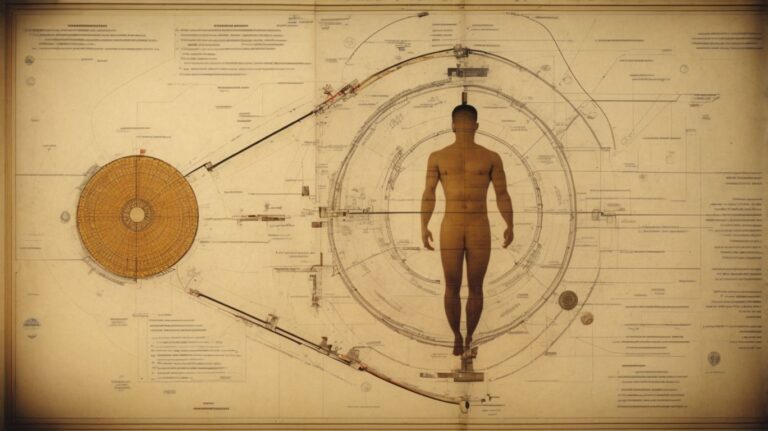Psychodynamic psychology is a fascinating field that delves into the unconscious mind, childhood experiences, and defense mechanisms. In this article, we will explore the history of psychodynamic psychology, its key principles, and how it has evolved over time.
From the pioneers of the field to its modern applications and controversies, we will cover it all. By understanding psychodynamic psychology, you can gain valuable insights into human behavior and mental health. So, let’s dive in and explore this intriguing area of psychology.
Contents
- 1 Key Takeaways:
- 2 What Is Psychodynamic Psychology?
- 3 History of Psychodynamic Psychology
- 4 Key Principles of Psychodynamic Psychology
- 5 How Has Psychodynamic Psychology Evolved?
- 6 What Are the Benefits of Understanding Psychodynamic Psychology?
- 7 Frequently Asked Questions
- 7.1 What is the evolution of psychodynamic psychology?
- 7.2 When did psychodynamic psychology first emerge?
- 7.3 What are the key principles of psychodynamic psychology?
- 7.4 How has psychodynamic psychology evolved over time?
- 7.5 What are some criticisms of psychodynamic psychology?
- 7.6 Can psychodynamic principles be applied to modern therapies?
Key Takeaways:
What Is Psychodynamic Psychology?
Psychodynamic psychology, rooted in the psychoanalytic tradition, explores the intricate dynamics of unconscious processes and their influence on human behavior and cognition.
This approach, developed by Sigmund Freud and later expanded by other influential figures like Carl Jung and Alfred Adler, delves into the complexities of the human mind, emphasizing the significance of early childhood experiences and the interplay between the conscious and unconscious mind.
Central to psychodynamic psychology is the concept of defense mechanisms, which individuals employ to cope with internal conflicts and protect themselves from anxiety-arousing thoughts and feelings.
The therapeutic technique of free association, where patients express their thoughts and emotions without censorship, is a cornerstone of psychoanalysis and has significantly shaped the practices within psychodynamic psychology.
History of Psychodynamic Psychology
The history of psychodynamic psychology is deeply intertwined with the groundbreaking work of Sigmund Freud and other influential figures in the field, shaping psychoanalytic culture and presenting opportunities and challenges in light of advancements in neuroscience.
Psychodynamic psychology, with its roots in the late 19th and early 20th centuries, emerged as a pivotal approach to understanding human behavior. It emphasizes the role of unconscious processes and childhood experiences.
Sigmund Freud, often regarded as the father of psychoanalysis, introduced concepts such as the id, ego, and superego, and the significance of dreams in exploring the human psyche. Carl Jung, an influential figure in psychodynamic psychology, expanded upon Freud’s ideas by proposing his own theories on the collective unconscious and individuation. Their work laid a solid foundation for future psychologists to further develop and refine the concepts inherent in psychodynamic theory.
Who Were the Pioneers of Psychodynamic Psychology?
The pioneers of psychodynamic psychology, including Carl Jung, Alfred Adler, Melanie Klein, Karen Horney, and Erik Erikson, significantly expanded and diversified the foundational concepts established by Sigmund Freud.
Each of these pioneers brought a unique perspective to psychodynamic psychology, contributing in distinct ways to the evolution of the field.
Carl Jung, for instance, introduced the concept of the collective unconscious and archetypes, expanding beyond Freud’s focus on the individual unconscious. Similarly, Alfred Adler’s emphasis on the individual’s pursuit of superiority and birth order dynamics added new dimensions to the understanding of human behavior.
Melanie Klein delved into the early development of the mind, particularly with her work on object relations theory, while Karen Horney’s focus on cultural and societal influences on personality development brought a valuable sociocultural perspective to the field.
Erik Erikson’s stages of psychosocial development extended the understanding of personality across the lifespan, emphasizing the influence of social interactions and experiences.
What Were the Key Events in the Development of Psychodynamic Psychology?
The development of psychodynamic psychology was marked by significant events such as the elucidation of the tripartite personality, the formulation of psychosexual stages, the understanding of defense mechanisms, and the establishment of prominent psychoanalytic associations.
One of the foundational milestones in the development of psychodynamic psychology was Sigmund Freud’s articulation of the tripartite model of the mind, consisting of the id, ego, and superego.
This revolutionized the understanding of human behavior and motivation.
The delineation of psychosexual stages – oral, anal, phallic, latency, and genital – provided a lens through which to comprehend the influence of early childhood experiences on an individual’s psychological development.
The emergence of the concept of defense mechanisms offered a framework for exploring the subconscious strategies employed to cope with internal conflicts.
This contributed to the broader understanding of human cognition and emotion regulation.
The establishment of influential psychoanalytic associations, such as the International Psychoanalytical Association and the American Psychoanalytic Association, fostered the dissemination and refinement of psychodynamic theories and therapeutic practices.
This cemented their enduring impact on the field of psychology.
Key Principles of Psychodynamic Psychology
The key principles of psychodynamic psychology revolve around understanding the profound influence of the unconscious mind, the significance of early childhood experiences, the intricate interplay of defense mechanisms, and the fundamental models such as the topographic and structural models.
Psychodynamic psychology places a strong emphasis on the unconscious mind as a primary determinant of human behavior. It asserts that much of our mental activity occurs outside of conscious awareness and that these unconscious processes significantly shape our thoughts, emotions, and behaviors.
It highlights the formative nature of early childhood experiences, proposing that events during this developmental stage can have a lasting impact on an individual’s psychological functioning throughout life. In addition, psychodynamic theory delves into the operation of defense mechanisms, which are unconscious strategies employed to protect the individual from anxiety and internal conflicts. These mechanisms, such as repression, projection, and rationalization, are thought to shape personality and influence behavior.
Unconscious Mind
The concept of the unconscious mind is central to psychodynamic psychology, shaping the perspective on human behavior, cognition, and the intricate interplay of unconscious processes.
This concept was expounded by Sigmund Freud, who proposed that beneath our conscious awareness lay a realm of repressed desires, memories, and emotions.
Freud’s theory posits that the unconscious mind influences our thoughts, behaviors, and emotions, often in ways we are not consciously aware of. The significance of the unconscious mind in psychoanalysis underscores the role it plays in understanding psychological disturbances and in therapeutic interventions.
While empirical testing of the unconscious mind poses methodological challenges, its cultural impact can be observed in literature, art, and popular culture, influencing our understanding of human nature.
Importance of Childhood Experiences
The importance of childhood experiences, as emphasized by Sigmund Freud and other psychodynamic theorists, plays a pivotal role in shaping the inner conflicts of the mind and influencing adult behavior and personality development.
According to psychodynamic psychology, childhood experiences, especially within the first six years, significantly impact an individual’s psychological development.
Freud’s theory of psychosexual stages, such as the oral, anal, phallic, latency, and genital stages, highlights the influence of early experiences on the formation of personality and the development of inner conflicts.
The interactions with primary caregivers during these stages affect the formation of the id, ego, and superego, which shape individuals’ perceptions, behavior, and responses to social interactions later in life.
Unresolved conflicts from early experiences can lead to psychological disturbances in adulthood, influencing emotional and behavioral patterns.
Defense Mechanisms
Defense mechanisms, rooted in the interplay of the id, ego, and superego, constitute essential adaptive strategies that safeguard the mind against psychic determinism and the resolution of inner conflicts.
In psychodynamic psychology, the id, the source of instinctual drives, operates on the pleasure principle, seeking immediate gratification.
In contrast, the ego, working in accordance with the reality principle, balances the id’s impulses by considering the external world’s demands and constraints.
The superego, internalizing societal norms and moral values, functions as an inner moral compass, enforcing guilt and shame when its standards are not met.
Through this intricate interplay, ego defenses, such as repression, projection, and sublimation, help manage conflicting desires and reduce anxiety.
Role of the Therapist
The role of the therapist in psychodynamic psychology involves the application of object relations theory, cultural insights from psychoanalysis, and the integration of diverse theoretical frameworks to facilitate effective therapeutic interventions.
Object relations theory plays a crucial role in understanding how individuals form interpersonal relationships, emphasizing the significance of early attachment experiences on their psychological functioning. Therapists leverage this framework to explore clients’ internalized representations of relationships, thereby addressing deep-seated relational patterns and promoting healthier connections.
Cultural influences from psychoanalysis prompt therapists to consider how societal norms, values, and expectations shape clients’ experiences, behaviors, and relational dynamics. Recognizing the cultural context is essential for tailoring interventions that are sensitive to clients’ unique backgrounds.
Therapists in psychodynamic psychology integrate various theoretical perspectives such as cognitive-behavioral or humanistic approaches to complement traditional psychodynamic techniques. This integrative approach allows therapists to adapt their interventions according to individual client needs and preferences, maximizing therapeutic effectiveness.
How Has Psychodynamic Psychology Evolved?
Psychodynamic psychology has evolved through modern applications of psychodynamic therapy, the integration with other theories, and the ongoing empirical testing of foundational psychodynamic concepts.
This evolution is reflected in the diverse ways psychodynamic therapy is now applied, including its integration with cognitive-behavioral, humanistic, and existential frameworks.
This integration has led to the development of integrative approaches that draw on the strengths of each perspective, providing a more comprehensive understanding of human behavior and experience.
The ongoing empirical testing of core psychodynamic concepts, such as unconscious processes and early childhood experiences, has contributed to the validation and refinement of these foundational ideas in contemporary psychological research.
Modern Applications of Psychodynamic Therapy
Modern applications of psychodynamic therapy encompass a nuanced understanding of psychosexual stage models, the adaptive operation of defense mechanisms, cultural insights from psychoanalysis, and the incorporation of object relations theory to address contemporary clinical challenges.
The contemporary applications of psychodynamic therapy reflect a comprehensive approach to understanding human behavior, emotions, and relationships.
Psychosexual stage models, originally proposed by Freud, remain relevant tools in exploring the development of personality and its impact on adult functioning.
The adaptive nature of defense mechanisms is an essential consideration in supporting individuals to navigate challenges and achieve personal growth.
Cultural perspectives in psychoanalysis further enrich the therapeutic process by acknowledging diversity and understanding unique societal influences on individuals’ psychological well-being.
The application of object relations theory provides valuable insights into addressing complex relational dynamics and attachment patterns in modern clinical contexts.
Integration with Other Theories
The integration of psychodynamic psychology with other theories involves a comprehensive understanding of the topographic and structural models, the adaptive function of ego defenses, and the empirical testing of psychodynamic concepts to establish synergies with diverse theoretical frameworks.
Notably, the assimilation of topographic and structural models from psychodynamic psychology with other theories seeks to broaden the scope of psychological understanding by incorporating varied perspectives.
The operation of ego defenses within the framework of psychodynamic psychology plays a crucial role in elucidating individual behavior and mental processes, creating vital linkages with other psychological approaches.
The empirical validation of psychodynamic concepts serves as a platform for fostering cohesive relationships with alternate theoretical frameworks, emphasizing the importance of evidence-based practices in amalgamating different schools of thought.
Criticisms and Controversies
Psychodynamic psychology has been subject to criticisms and controversies, stemming from the debate surrounding foundational psychodynamic theories, the influence of psychoanalytic culture, and the opportunities and challenges posed by advancements in neuroscience.
The criticisms center around the perceived lack of empirical evidence for many foundational psychodynamic concepts, such as the Oedipus complex and the role of the unconscious mind. Critics argue that these theories lack scientific validity, leading to skepticism within the academic community.
The dominance of psychoanalytic culture has been criticized for stifling alternative perspectives within the field. The deep historical roots and powerful influence of Freudian principles have made it challenging for newer paradigms to gain acceptance.
What Are the Benefits of Understanding Psychodynamic Psychology?
Understanding psychodynamic psychology offers a profound insight into the psychodynamic approach, the enduring significance of early experiences, the intricacies of inner conflicts within the mind, and the interplay of the id, ego, and superego in shaping human behavior.
Comprehending psychodynamic psychology enables individuals to delve into the depths of their subconscious, unraveling the complexities that often influence behavior and emotions.
It enables individuals to recognize and address unresolved childhood experiences that may continue to impact their present lives, paving the way for emotional healing and personal growth. This understanding fosters empathy and compassion, both towards oneself and others, as it sheds light on the intricate web of human motivations and interpersonal dynamics.
Frequently Asked Questions
What is the evolution of psychodynamic psychology?
The evolution of psychodynamic psychology refers to the development and changes that have occurred within this field of psychology over time.
When did psychodynamic psychology first emerge?
Psychodynamic psychology first emerged in the late 19th century with the work of Sigmund Freud, who is considered the founder of this approach.
What are the key principles of psychodynamic psychology?
The key principles of psychodynamic psychology include the role of the unconscious mind, the influence of childhood experiences, and the importance of defense mechanisms in shaping behavior.
How has psychodynamic psychology evolved over time?
Psychodynamic psychology has evolved from its early focus on the role of unconscious processes and childhood experiences to include more modern concepts such as attachment theory and the impact of culture and social factors.
What are some criticisms of psychodynamic psychology?
Some criticisms of psychodynamic psychology include its focus on unobservable concepts, lack of empirical evidence, and its limited applicability to diverse populations.
Can psychodynamic principles be applied to modern therapies?
Yes, psychodynamic principles have been incorporated into various modern therapies, such as psychodynamic therapy, attachment-based therapy, and object relations therapy. These therapies aim to address unconscious conflicts and past experiences to promote personal growth and healing.



